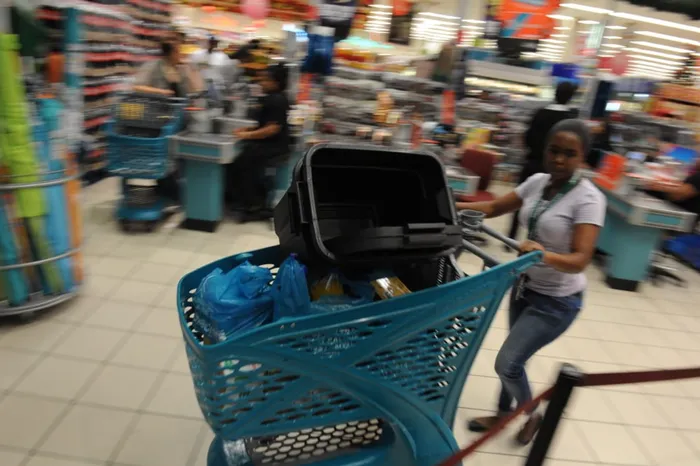
De Schepper said that some retailers have to deal with unexpected surcharges on top of their rental agreements due to escalating operational costs as landlords need to secure private water supply.
Image: File photo
The Bureau for Economic Research (BER) has cautioned that South Africa’s modest rebound in economic growth belies the severe pressures still confronting businesses, warning that fragile private sector investment and worsening operating conditions continue to threaten the country’s growth outlook.
This follows Statistics South Africa’s release last week showing that gross domestic product (GDP) expanded by 0.8% in the second quarter of 2025, lifting the probability of full-year growth exceeding 1%.
Lisette IJssel de Schepper, chief economist at the BER, acknowledged the unexpectedly positive GDP outcome but warned that such gains do not reflect the realities on the ground.
De Schepper said the BER’s latest business survey, which attracted more than 300 voluntary comments from respondents, indicated widespread dissatisfaction with the economic environment.
“In the non-compulsory question, we prompt them to think about negative and positive developments. Unfortunately, the recent feedback is mostly negative and provides a sobering reality check,” she said.
De Schepper said that some retailers have to deal with unexpected surcharges on top of their rental agreements due to escalating operational costs as landlords need to secure private water supply.
“Meanwhile, building contractors complain that they are struggling to pay their workers because they are not getting paid on time for work done (often by the government, with late revenue receipts partly to blame).”
Such issues have prompted deeper concerns over crime and extortion, with some businesses citing the need to pay for 'protection' against construction mafias as a recurring business expense.
“We hear about struggling start-ups who must wade through layers of red tape and corruption, and experienced business owners who worry they have no option but to close down. They worry because they know this will cause job losses and hardship,” De Schepper said.
“Imagine the shocks that South African business owners have survived in the last 20 to 30 years, only for 2025 to be the year that breaks the camel's back. There were a few positive remarks, but even these were not unequivocal.”
Beyond sentiment, the BER indicators tracking production, sales, employment, and selling prices painted the same dismal picture. A particular area of concern is the collapse in fixed investment.
“Government spending has been an important support too, but the consumer and state can only spend so much before the money runs out. While investment-led recoveries are rare in SA, fixed investment is the fuel that is needed to keep the engine running,” De Schepper said.
“Consumer spending is 5% higher, but fixed investment is 11% lower. Strip out machinery and equipment – much of it renewables – and private sector fixed investment is 22% lower.”
Independent economists share this concern.
Professor Raymond Parsons, a North-West University Business School economist, said the weak performance of fixed capital formation was a red flag.
“While higher household and government consumption expenditure has helped to strengthen the incipient economic recovery, fixed capital investment is needed to make it sustainable in the longer term,” Parsons said.
Professor Waldo Krugell, an economist at North-West University, said the economy was hardly growing, and when there was growth, it was frequently the consumer that was driving it.
“Businesses are just getting by. I think for different reasons, we've seen sort of the cost impact of the electricity crisis, the logistics crisis, and the service delivery problems,” Krugell said.
“The little bit of growth that we do get is from consumers. It's not from investment. Those reforms that, as economists always talk about, have been slow in happening. The end result is very low levels of investment that translate into very little economic growth and very little momentum to move forward.”
Meanwhile, De Schepper said that the problem with slow progress was that the to-do list continues to grow, so prioritising reforms is important.
“For macroeconomic policy certainty, we need to reset the benchmarks – officially target both lower inflation and a primary budget surplus.”
BUSINESS REPORT